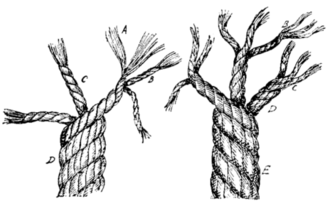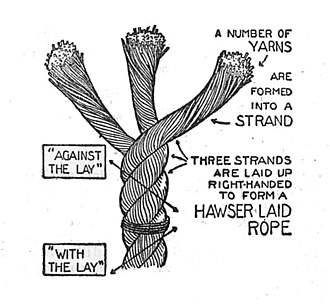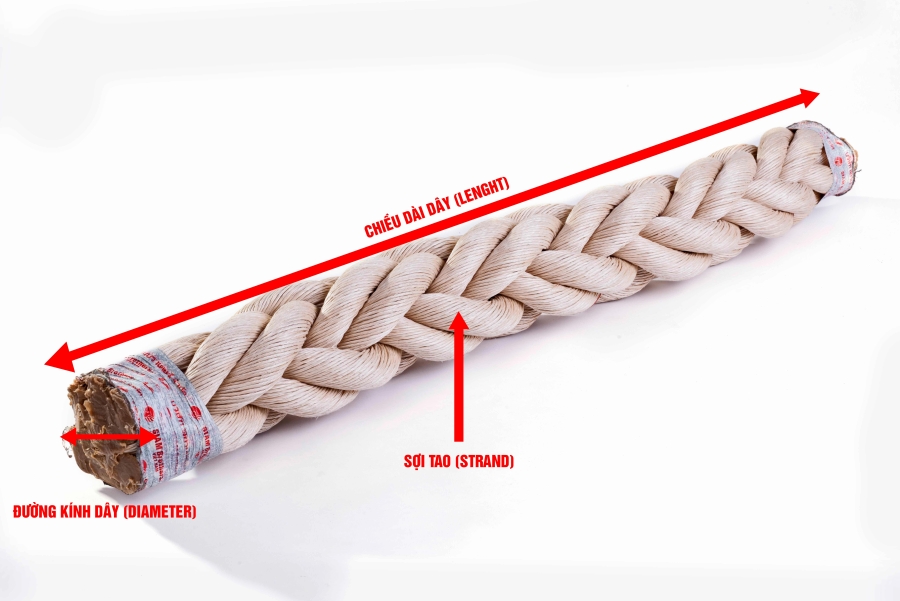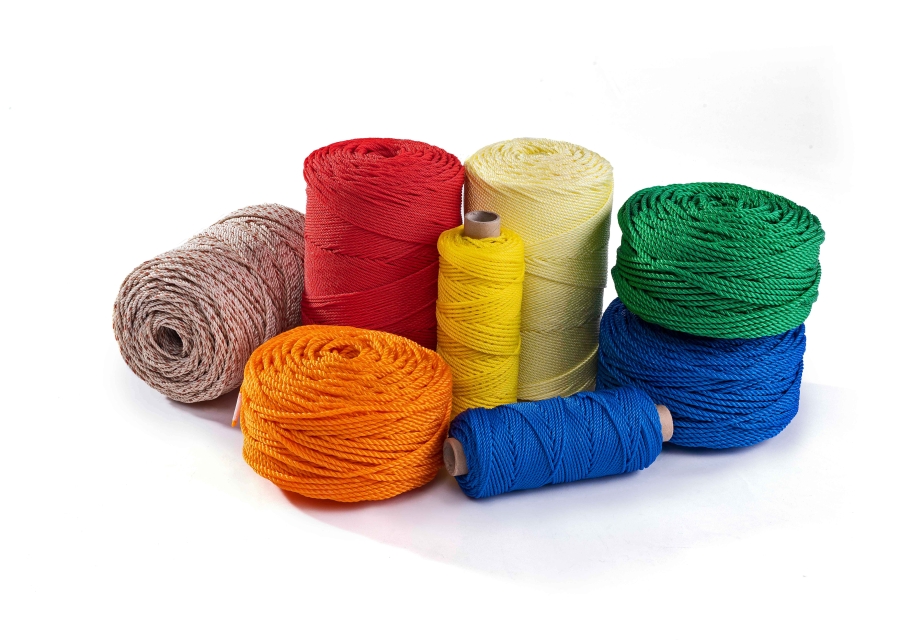Every professional field has its specialized terminology, and understanding these terms is essential for effective work. The field of ropes has some common terms that are important to know. Let's explore them in the article below:
"Rope": The rope is a group of long, slender strands or fibers twisted or braided together to form a larger and stronger cord. Different types of ropes can be made from various materials, such as cotton, nylon, polyester, steel cable, PP rope, PE rope, and other synthetic fibers.
"Net": Net has various meanings, but in the context of ropes or fishing, it refers to fishing nets. In Vietnam, there are various forms of fishing nets, such as trawl nets and seine nets. 'Rope and Net' signifies the industry related to ropes and fishing nets.
"Cord": Cord has a similar meaning to Rope, but rope generally refers to larger cords, while cord is often used for smaller ones.
"Twine": Twine is a small braided cord, typically created by intertwining two or more small strands or threads.
"Yarn": Yarn refers to individual strands of fibers twisted together, created by twisting fibers to form a small but durable material, suitable for braiding into ropes or weaving into fabric.


Pic1: Terminology Related to Ropes
Diameter: The thickness of a rope strand, given in millimeters (mm) and ranging from a few millimeters to several hundred millimeters. Understanding the diameter is crucial for selecting a rope that suits specific needs.
Strand: A complete fiber twisted from yarns, though strands alone are not robust enough for tasks requiring high tensile strength. Strands are braided together to form a complete rope, often with 3-strand, 4-strand, or 8-strand ropes being common. The more strands braided together, the stronger the rope, but the braiding technique becomes more complex.
Color: An easily readable specification, with many products displaying color on the market. Ropes nowadays come in a variety of colors, with common ones being light brown, yellow, red, etc. Many businesses offer custom dyeing services based on customer preferences.
Density: The weight of a rope per unit length, measured in grams per meter (g/m). Larger diameters and more strands contribute to greater rope density.
Length: The unit of measurement for rope length is typically meters per coil (m/coil or m/roll). Common coil sizes include 200m/roll, 220m/roll, 100m/roll, etc.
Tensile Force: The force required to break a rope, measured in kilograms of force (kgf). Kgf is a unit of load measurement, standing for kilogram-force. This unit is crucial for understanding the tensile strength of the rope, influencing the selection of a suitable product for specific work requirements, especially those demanding high tensile force.
Denier: Denier is the weight in grams of 9000 meters of fiber, denoted as "D" For example, if a rope is labeled as 3000D denier, it means the fiber, stretched to 9000 meters, weighs 3000 grams. This specification is often used for agricultural twines, where twine is a type of rope twisted or braided together.

Losing Machine (Braiding machine) is a type of machine used to intertwine strands into a complete rope product. Common types of braiding machines in Vietnam include 3-strand braiding machines, 4-strand braiding machines, and 8-strand braiding machines.
Spinning Machine is a device that produces polymer solutions or melts from fibers. Depending on different fiber drawing methods, fiber extruders are classified into three types: Wet spinning machines, melt spinning machines, and dry spinning machines.
PP Rope: is a type of rope made from polypropylene resin pellets. Polypropylene resin pellets are rigid and durable, making them highly suitable for rope production. PP ropes are currently the most common and widely used type in the market.
PE Rope: is a rope made from polyethylene resin pellets. Polyethylene resin pellets are flexible and glossy, making them suitable for tasks that require elasticity and softness, such as making climbing nets, fishing lines, and more.
Fishing Line: is a term used by coastal residents specialized in fishing. Fishing line refers to ropes of various types, such as 3-strand, 4-strand, and 8-strand ropes made from polypropylene (PP) or polyethylene (PE).
Cock Rope, Thai Fishing Line, Thai Cock Rope, etc.: These are local terms used by residents around coastal areas in Vietnam engaged in fishing. They refer to the rope products manufactured by Siam Brothers Vietnam, a well-known brand with the iconic rooster logo.
Agricultural Twine: is a type of rope twisted from yarns, characterized by its small yet robust fibers. Agricultural twine is used in various agricultural applications, such as tying banana plants, greenhouse construction, straw binding, trellising, hanging chili plants, and supporting melons.

Rope Products
Above are some commonly used terms in the field of ropes in Vietnam. In the future, Siam Brothers Vietnam will update additional terms for everyone to learn and understand. Customers in need of ropes for fishing, agricultural support, or aquaculture can contact Siam Brothers Vietnam or refer to "PRODUCTS" for more information.